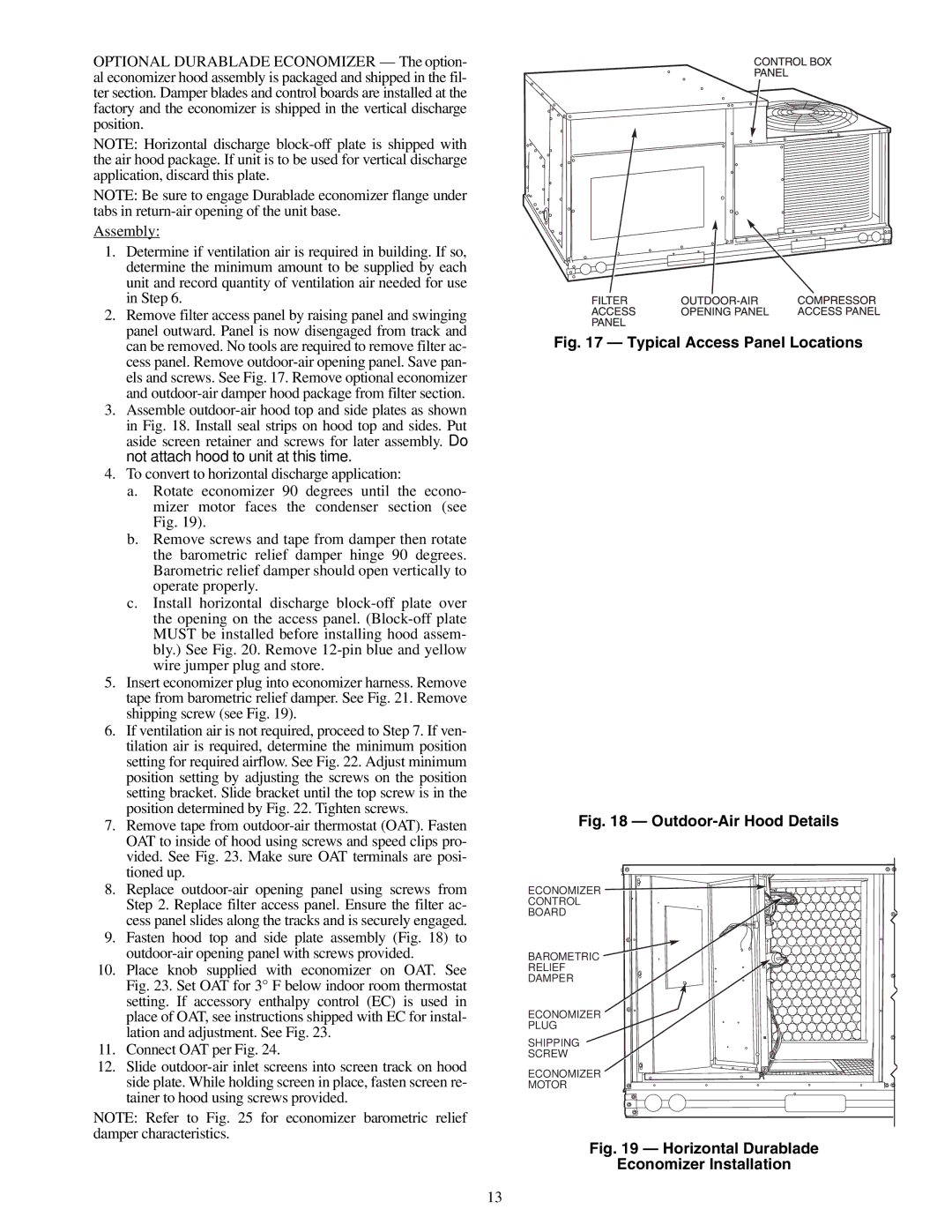
OPTIONAL DURABLADE ECONOMIZER — The option- al economizer hood assembly is packaged and shipped in the fil- ter section. Damper blades and control boards are installed at the factory and the economizer is shipped in the vertical discharge position.
NOTE: Horizontal discharge
NOTE: Be sure to engage Durablade economizer flange under tabs in
Assembly:
1.Determine if ventilation air is required in building. If so, determine the minimum amount to be supplied by each unit and record quantity of ventilation air needed for use in Step 6.
2.Remove filter access panel by raising panel and swinging panel outward. Panel is now disengaged from track and can be removed. No tools are required to remove filter ac- cess panel. Remove
3.Assemble
4.To convert to horizontal discharge application:
a.Rotate economizer 90 degrees until the econo- mizer motor faces the condenser section (see Fig. 19).
b.Remove screws and tape from damper then rotate the barometric relief damper hinge 90 degrees. Barometric relief damper should open vertically to operate properly.
c.Install horizontal discharge
5.Insert economizer plug into economizer harness. Remove tape from barometric relief damper. See Fig. 21. Remove shipping screw (see Fig. 19).
6.If ventilation air is not required, proceed to Step 7. If ven- tilation air is required, determine the minimum position setting for required airflow. See Fig. 22. Adjust minimum position setting by adjusting the screws on the position setting bracket. Slide bracket until the top screw is in the position determined by Fig. 22. Tighten screws.
7.Remove tape from
8.Replace
9.Fasten hood top and side plate assembly (Fig. 18) to
10.Place knob supplied with economizer on OAT. See Fig. 23. Set OAT for 3° F below indoor room thermostat setting. If accessory enthalpy control (EC) is used in place of OAT, see instructions shipped with EC for instal- lation and adjustment. See Fig. 23.
11.Connect OAT per Fig. 24.
12.Slide
NOTE: Refer to Fig. 25 for economizer barometric relief damper characteristics.
Fig. 17 — Typical Access Panel Locations
Fig. 18 — Outdoor-Air Hood Details
ECONOMIZER ![]()
![]()
CONTROL
BOARD
BAROMETRIC ![]()
RELIEF
DAMPER
ECONOMIZER
PLUG
SHIPPING
SCREW
ECONOMIZER
MOTOR
Fig. 19 — Horizontal Durablade
Economizer Installation
13
